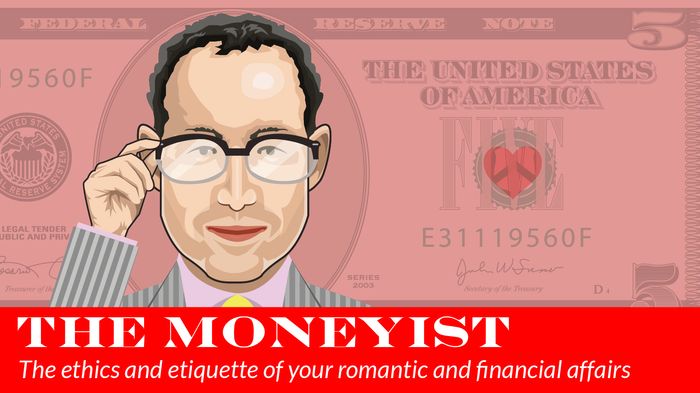
“Should I pay off the reverse mortgage and risk losing the money if she ends up spending years in a home?”
Source link
pays
Robinhood pays $605 million for 55 million shares once owned by Sam Bankman-Fried following a 4-way tussle

-
Robinhood bought 55 million of its shares worth $605 million that Sam Bankman-Fried once owned.
-
The stake was seized by the Department of Justice in January as part of charges against the FTX founder.
-
Robinhood, SBF, FTX, and a bankrupt crypto lender had all laid claim to the seized shares.
Robinhood has bought back more than $600 million worth of its own shares that were owned by Sam Bankman-Fried before his arrest.
In a regulatory filing with the Securities and Exchange Commission (SEC) Friday, the trading platform said it had acquired 55 million shares from the United States Marshal Service (USMS).
The deal is worth more than $605 million. The same number of Robinhood shares were worth about $450 million when they were seized by the DoJ following the FTX founder’s arrest in January, but the stock has since risen more than a third this year.
Emergent Fidelity Technologies bought the Robinhood stake from Bankman-Fried, but went bankrupt shortly after FTX collapsed, bringing down intertwined companies with it.
The Robinhood shares made up the majority of a $700 million pool of Bankman-Fried’s assets seized following his arrest. He would be forced to give up the assets if found guilty of charges including fraud, money laundering, and violating campaign finance laws.
The sale settles a long-running four-party dispute. Bankrupt crypto lender BlockFi first sued Emergent Fidelity for the shares in November, claiming they had been promised as collateral for a loan.
FTX disputed this claim in December, arguing the assets should be seized until they could be fairly split among creditors. Then in January, Bankman-Fried argued he needed the stock to fund his legal defense.
Shares in Robinhood closed 2% higher Friday following the release of the filing, valuing the company at about $10 billion. Stock repurchases can lift a company’s share price by bringing down the supply of shares in open circulation.
It’s unclear what will happen to the funds now held by the Marshal Service.
Bankman-Fried was sent to jail last month after a federal judge revoked his bail, convinced that he’d repeatedly tried to influence witnesses against him, ahead of his trial in October.
Read the original article on Business Insider

Statistically Speaking, This Is the Best Age to Claim Social Security Benefits — and It’s Not Even Close

These Two Defense Titans Will Battle to Build the Nation’s Next Fighter Jet

4 Unsurpassed Growth Stocks You’ll Regret Not Buying in the Wake of the Nasdaq Bear Market Dip

A Bull Market Is Coming: 1 Artificial Intelligence (AI) Growth Stock Has Billionaires Betting Big
My wife’s family visits and never pays for anything. How do we get rid of them?
A few years ago, my wife’s cousin stayed with us for about six weeks while she was going through the hiring process at my company. It was the longest six weeks of my life. She pretty much sat on the couch and never moved a finger to help around the house — even to pick up after herself. Never once did this relative buy groceries or treat us to a meal. It has caused a lot of tension in our marriage.
In March 2020, we agreed to have the same cousin’s family — aunt, uncle, sister and her two children — stay with us. Susan, the cousin, lives in a one-bedroom apartment and has no room to host them. (Yes, she has paid $1,100 a month for the last 11-plus years. That’s another story about lost equity opportunities.) The day they were to arrive was the day that America shut down due to COVID-19.
“‘My wife essentially provided a maid service to our guests, and it has become too much for me to bear.’”
Even though they had just driven 1,400 miles and been in contact with numerous people during their three-day drive, we still welcomed them. For seven days we had no choice but to have them at our house. I was an “essential worker” during the pandemic, and had no choice but to go to work. That was a mixed blessing. My wife took five days of vacation because we have two children.
Long story short: We saw the same behavior from these relatives. My wife essentially provided a maid service to our guests, and it has become too much for me to bear. I spoke to my wife about asking them to help pitch in, but she refused to speak up, so I bit my tongue during their entire visit. Fast forward to 2023: This marked the fourth year that we’ve opened our home to my wife’s family.
My parents visit every other month (they live 200 miles away), and during every visit they offer to take us out to dinner, and clean up after themselves. They’ll wash dishes and tell us to sit down and relax. They never leave a mess. Why can’t my wife’s aunt, uncle and cousins be more like that? Their vacations should not cost us money, or create more work for us.
How do I tell them that we won’t be hosting them this year?
Not a Vrbo
Also read: ‘I feel used’: My partner stays with me 5 nights a week, even though he owns his own home. Should he pay for utilities and food?
Dear Not a Vrbo,
You can’t be liked by everyone, and it’s OK not to like certain people.
It starts with bad guests, and ends up with a car salesman who pushes you into overpaying for a jalopy. If you allow people to push you around, it won’t only cost you your peace of mind, it will take time out of your life — the most precious commodity we have, more valuable than gold, diamonds or pork chops. And, as you have discovered, it will also cost you money.
Once bitten, twice shy. Four bites? You’ve either caught bed bugs, or you’ve volunteered for too much punishment from these guests. But you have volunteered. You and your wife need to make a pact: You’re a team, you own a home together, and you both have families, but if one of you has an extended family that refuses to behave well, you need a unanimous vote to greenlight those guests in future.
There’s a big difference between hosting parents/in-laws and hosting aunts, uncles and cousins, especially ones that seem to think that your home is a responsibility-free zone. You’re not a five-star hotel. You’re not Disneyland
DIS,
Your role is not to cook and entertain and pretend like you don’t know that underneath the familiar, happy-go-lucky, smiling relative “masks” are a bunch of virtual strangers.
“‘It starts with bad guests, and ends up with a car salesman who pushes you into overpaying for a jalopy.’”
You don’t know these people. Not really. If you did, you would welcome them with open arms. You keep inviting them and expecting them to behave differently. Based on your repeated attempts to change this reality, I can only assume that a small, even a tiny, part of you, likes to get annoyed with them and/or you are afraid of what might happen if you tell them it’s not possible for them to stay.
Say what you mean, but don’t say it mean. “It doesn’t work for us this year.” Why? “We’ve got too much going on.” Why is that? “Because we’re just too busy.” Why? “We’ve got too much going on.” Stick to stock responses, put them in the spin cycle, and rinse and repeat. Pushy people know they’re pushy. That’s the point. It’s not about your comfort level, it’s about their ability to get what they want.
“‘You’re not being held hostage by your hosts, you’re being held hostage by your own unwillingness to set a clear boundary.’”
The time has come for (a) you and your wife to get on the same page (one person should always have the right to veto badly behaved guests) and (b) speak up for yourself. This is not about their stinginess and messiness, or thoughtfulness — that’s their business — it’s about your needs: “I need to have the house to ourselves this summer.” Why? “Because we’re too busy.” Why? “We’ve got too much going on.”
As one member of the Moneyist Facebook Group
META,
wrote: “My aunt had the same problem with her in-laws. My grandparents were obsessed with their image and wanted our family to look perfect, and warned her about what they would say to other people about her. My aunt responded: “At this point, I am perfectly fine with being the villain in their stories. Being nice got me nowhere!”
It’s time to change your thinking. You’re not being held hostage by your hosts, you’re being held hostage by your own unwillingness to set a clear boundary — and stick to it. The responsibility here lies with you, and not with your wife’s relatives. It’s your job to tell people what your needs are in situations such as this. They can respect those needs or not, but the end result is the same.
You will have a guest-free house this summer.

“Pushy people know they’re pushy. That’s the point. It’s not about your comfort level, it’s about their ability to get what they want.”
MarketWatch illustration
You can email The Moneyist with any financial and ethical questions related to coronavirus at qfottrell@marketwatch.com, and follow Quentin Fottrell on Twitter.
By emailing your questions, you agree to have them published anonymously on MarketWatch. By submitting your story to Dow Jones & Co., the publisher of MarketWatch, you understand and agree that we may use your story, or versions of it, in all media and platforms, including via third parties.
Check out the Moneyist private Facebook group, where we look for answers to life’s thorniest money issues. Readers write to me with all sorts of dilemmas. Post your questions, tell me what you want to know more about, or weigh in on the latest Moneyist columns.
The Moneyist regrets he cannot reply to questions individually.
More from Quentin Fottrell:
Am I cheap?’ I used to give my nieces and nephews $100 gift cards, but I left my job in tech for a stress-free life. Is $25 insulting?
‘How to travel for free’: I spent $500 hosting my friend for a week. Should she have paid for food and utilities?
‘He’s content living paycheck to paycheck’: My husband won’t work or get a driver’s license. Now things have gotten even worse.




